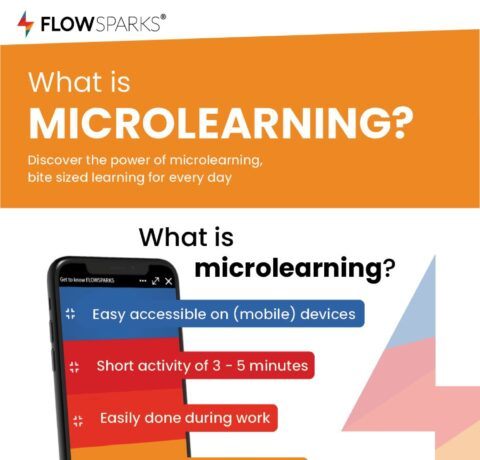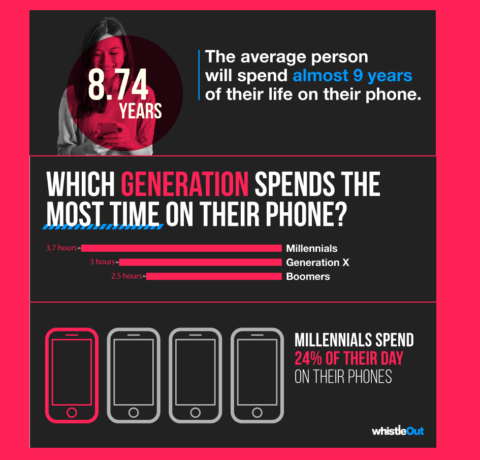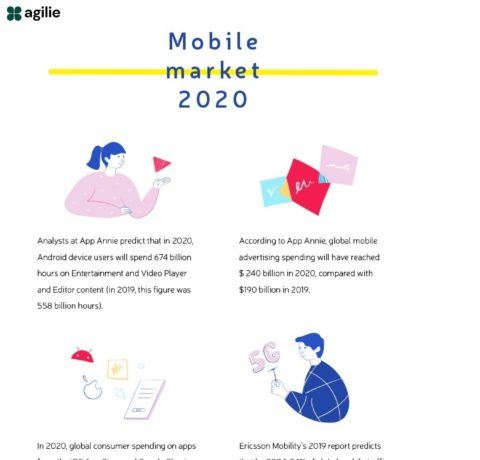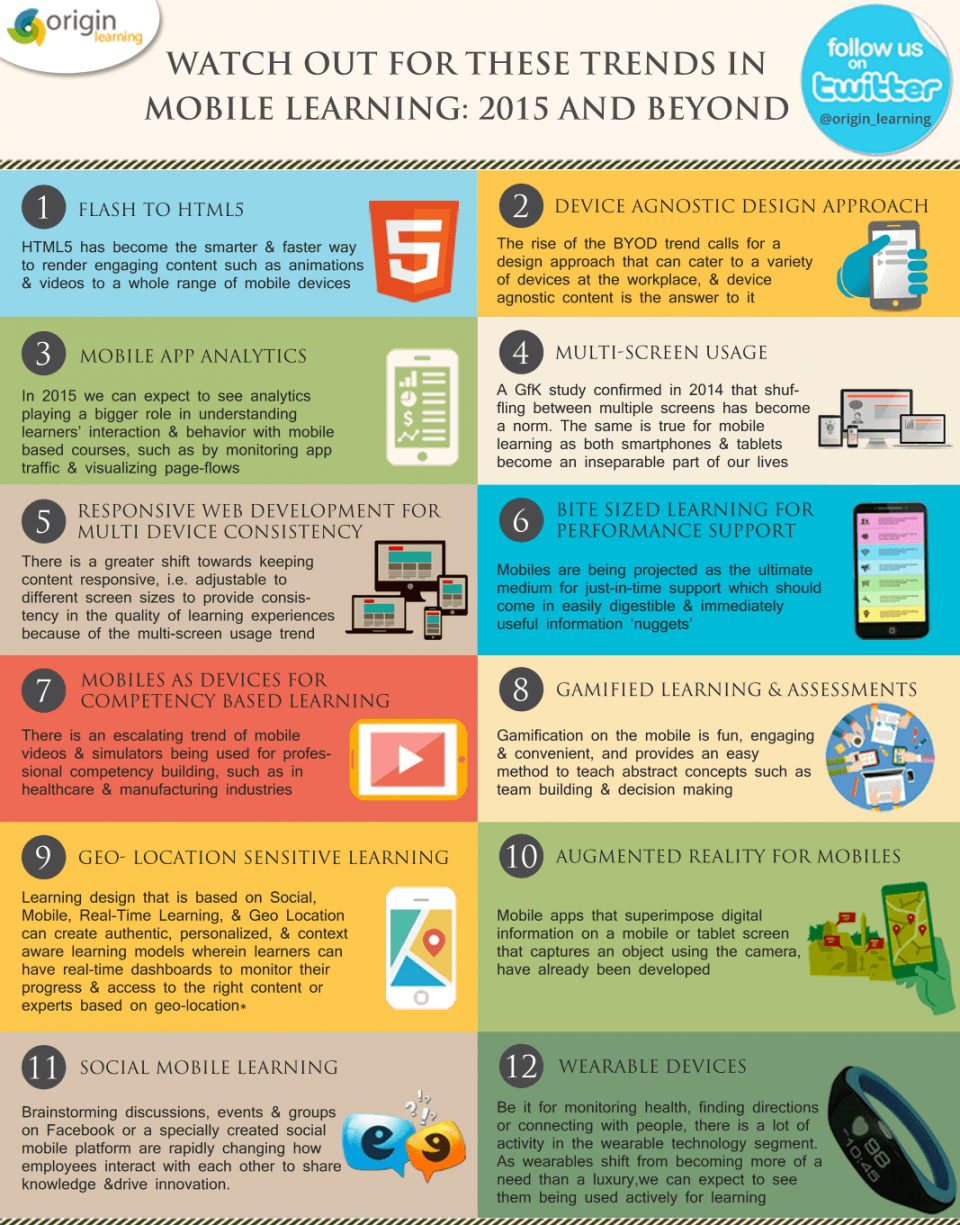2015 Mobile Learning Trends Infographic
The 2015 Mobile Learning Trends Infographic explores what role mobiles are playing in shaping up the workplace learning scenario. These trends with mobile learning are evidence to the fact that we are on the brink of a new era of learning – through the mobile device.
Flash to HTML5
For years, Flash has ruled mobile content delivery arena. But it’s high time that content designers shunned the legacy approach and embraced HTML5 – the smarter and faster way to render engaging content such as animations and videos to a whole range of mobile devices.
Device agnostic design approach
Of course, this is both a cause as well as an off shoot from the previous trend. With the number and kinds of devices growing every day, it will be impractical and extremely laborious for organizations to develop native apps. Device agnostic approach to design is helping solve this problem.
Mobile app analytics
In 2015 we can expect to see analytics playing a bigger role in understanding learners’ interaction and behavior with mobile based courses, such as by monitoring app traffic and visualize page-flows.
Multi-screen usage
The study which was conducted among of more than 2,000 people in both the UK and the US shows that as multiple devices become an inseparable part of our lives, shuffling between them has become a norm.
Responsive web development for multi device consistency
Responsive design is key to delivering consistent learning experiences as learners start a course on the laptop, finish it on their tablet and may be, review it on their mobile device. The current trend is to explore more ways to make content progressively enhanced and responsive to support learning behaviors and provide consistency as learners switch between devices.
Bite sized learning for performance support
With the increasing trend towards mobile learning, is also an increasing speculation and awareness about how to make it more effective. Consequently, there is a gradual shift from just shrinking down web pages to render on the mobile screen, to providing bite sized learning ‘nuggets’.
Mobiles as devices for competency based learning
The aim of competency building is to make workers adept at specific skills or competencies. In the area of competency building, mobile devices are and will continue to play the important role of augmenting training beyond the classroom. It is common to see mobile videos and simulators in the healthcare segment where newly practicing professionals or surgeons access videos from a library, say before a surgery.
Gamified mobile learning and assessments
Gamification on the mobile is fun, engaging and convenient. Taking short quizzes and assessments on the mobile is also on the rise, and this trend will continue.
Geo-Location sensitive learning
Learning design based on Social, Mobile, Real-Time Learning, and Geo Location technologies means learners can have real-time dashboards to monitor their progress and access to the right content or experts based on geo-location—all through mobile delivery.
Augmented Reality for mobiles
Augmented Reality is already making big waves. Many schools have toyed with the idea of using AR applications to support learning, such as when a student scans a page of his homework, a video of his teacher explaining a related concept pops up, or book reviews in the form of videoattached to scan-able book barcodes.
Social mobile learning
Mobile supported Learning Management Systems (LMS) with social features are rapidly changing how employees interact with each other to share knowledge and drive innovation.
Wearable devices
Since we are talking about mobile devices here, it would be unfair to not mention wearables. Be it for monitoring health, finding directions on the Google Glass or connecting with people with over Apple Watch or Android Wear, there is a lot of activity in the wearable technology segment. Such devices can be used for context sensitive content rendering, such as live streaming of a surgery procedure on the Google Glass. As wearables shift from becoming more of a need than a luxury (just as smartphones did, a couple of years ago) we can expect to see them being used actively for learning as well.







You can adjust your cookie preferences here.